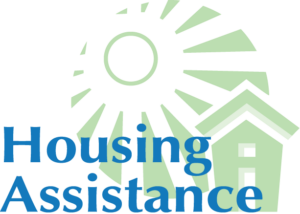 HYANNIS – Giraffes get the least amount of sleep of any mammal: 1.9 hours a day, according to the Better Sleep Council. Koalas get the most sleep, at 22 hours a day.
HYANNIS – Giraffes get the least amount of sleep of any mammal: 1.9 hours a day, according to the Better Sleep Council. Koalas get the most sleep, at 22 hours a day.
For humans, of course, the sweet spot is somewhere between the two extremes. We need at least seven hours of sleep each night to promote optimal health and well-being, so you might want to start counting koalas instead of sheep if you’re among the 30 to 40 percent of Americans who have trouble sleeping.
“When you don’t get enough sleep on a regular basis, you are at risk of developing chronic conditions such as heart disease, high blood pressure, obesity, diabetes and mental distress,” said Christopher L. Wathier, DO, a family practice physician with Falmouth Primary Care.
“I see a lot of patients with sleep problems, especially the elderly, and one of the worst things anyone can do is become dependent on medication to help them sleep.”
He recommends that you try anything to get a good night’s sleep – before turning to sleeping pills.
“Insomnia is a behavioral issue, not a chemical issue, so adding medicine to your routine should be a last resort. Too many sleeping pills have negative side effects. Addiction and increased falls, especially among the elderly, are common side effects of sleeping pills.”
The study reinforces what is already known about getting a good night’s sleep, Dr. Wathier said. Establishing simple routines can help us improve our sleep cycles, he said.
Setting Up Your Routine
A study in Sleep Medicine identified these easy, practical, non-pharmacological habits that can help you get a good night’s sleep, especially if you’re a night owl.
Keep the same wake-up times and bedtimes every day, including weekends.
Eat breakfast first thing after waking up, lunch at a consistent time each day, and dinner no later than 7 p.m.
Avoid caffeine.
If you’re a night-owl (who stays up late and sleeps late into the morning), wake up two to three hours earlier than usual and try to get maximum exposure to outdoor light in the morning.
Minimize exposure to light sources in the evening by going to bed two to three hours earlier than usual.
“The results were impressive,” said Dr. Wathier. He said that, after the three-week sleep study, participants who adopted these habits noted the following results:
Demonstrated improvements in cognitive performance, shown by an increase in reaction time.
Increased physical strength, demonstrated by improved grip strength in the morning.
Reaching ‘peak’ performance capacity in the afternoons rather than in the evenings, as they had reported before the study.
A decrease in feelings of depression and stress.
A decrease in daytime sleepiness.
There are no quick fixes for people struggling with insomnia, he said. Exercise is effective. Cognitive behavioral therapy is another good way to get better sleep. Finding a local source for cognitive behavioral sleep therapy isn’t easy, so Dr. Wathier recommended online courses that can effectively help teach biofeedback and other therapies that have lifelong benefits.
“It is worth taking the time to exercise and learn behavioral therapies,” he said.






















